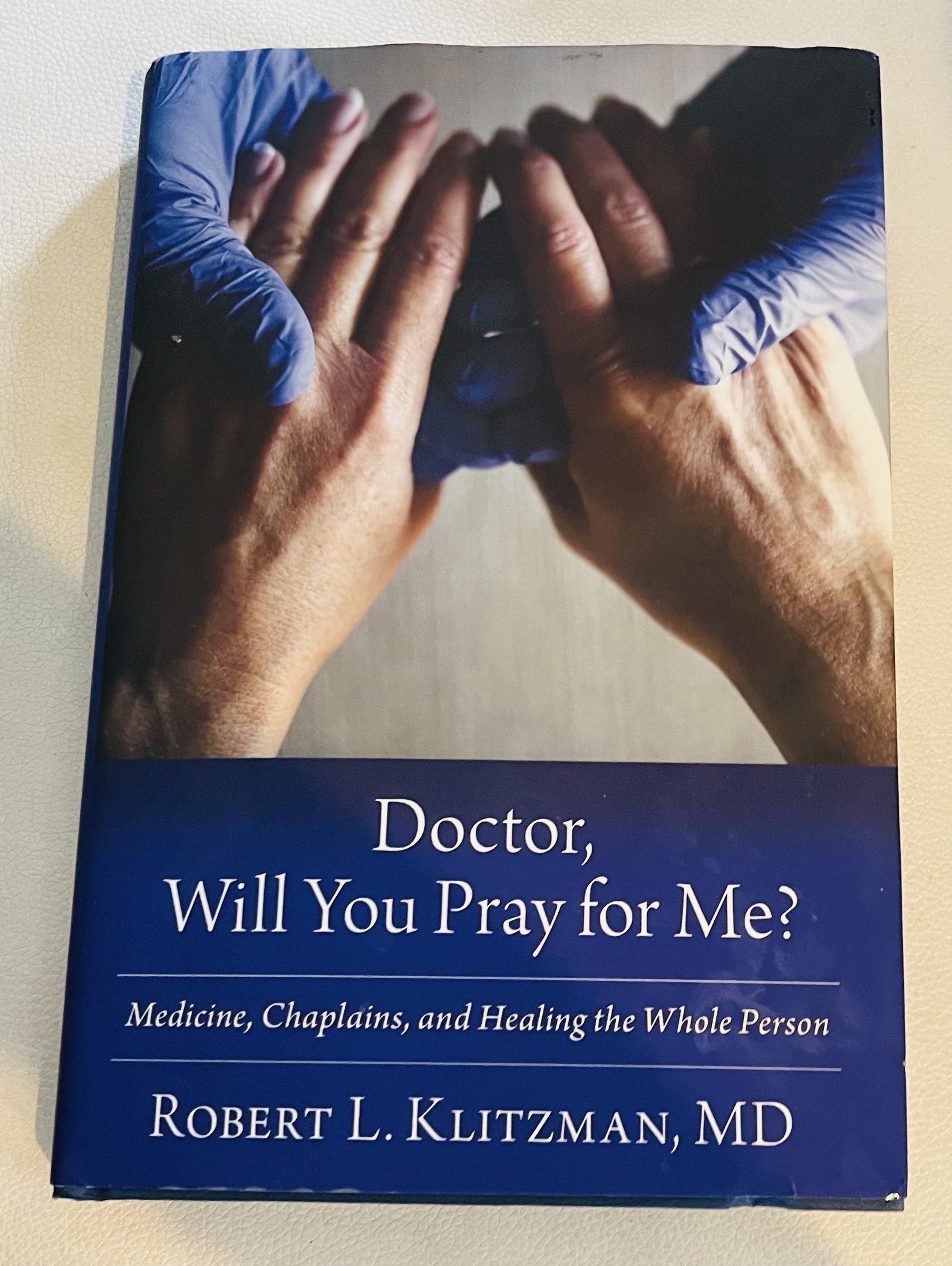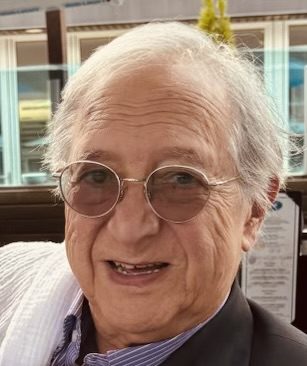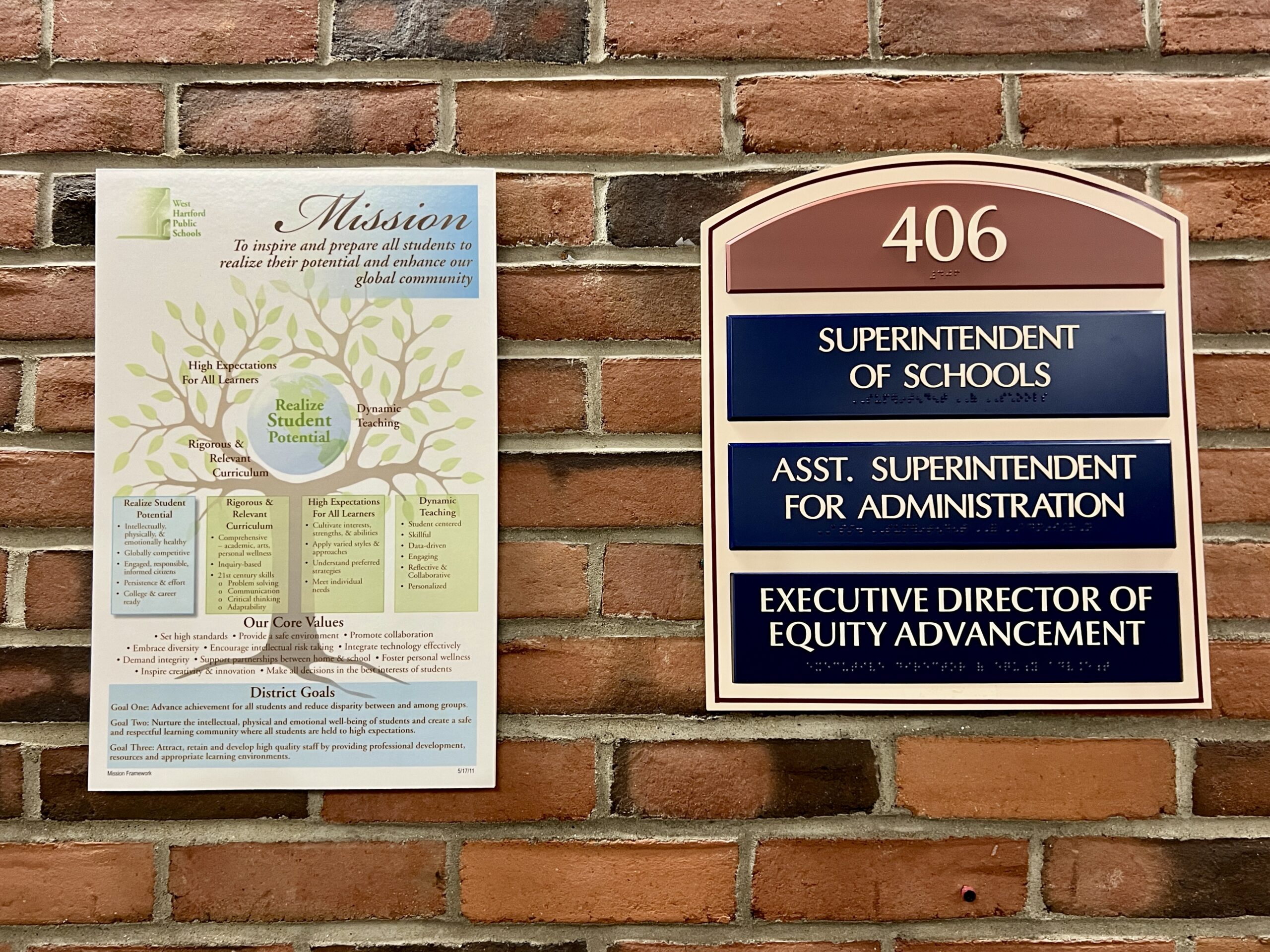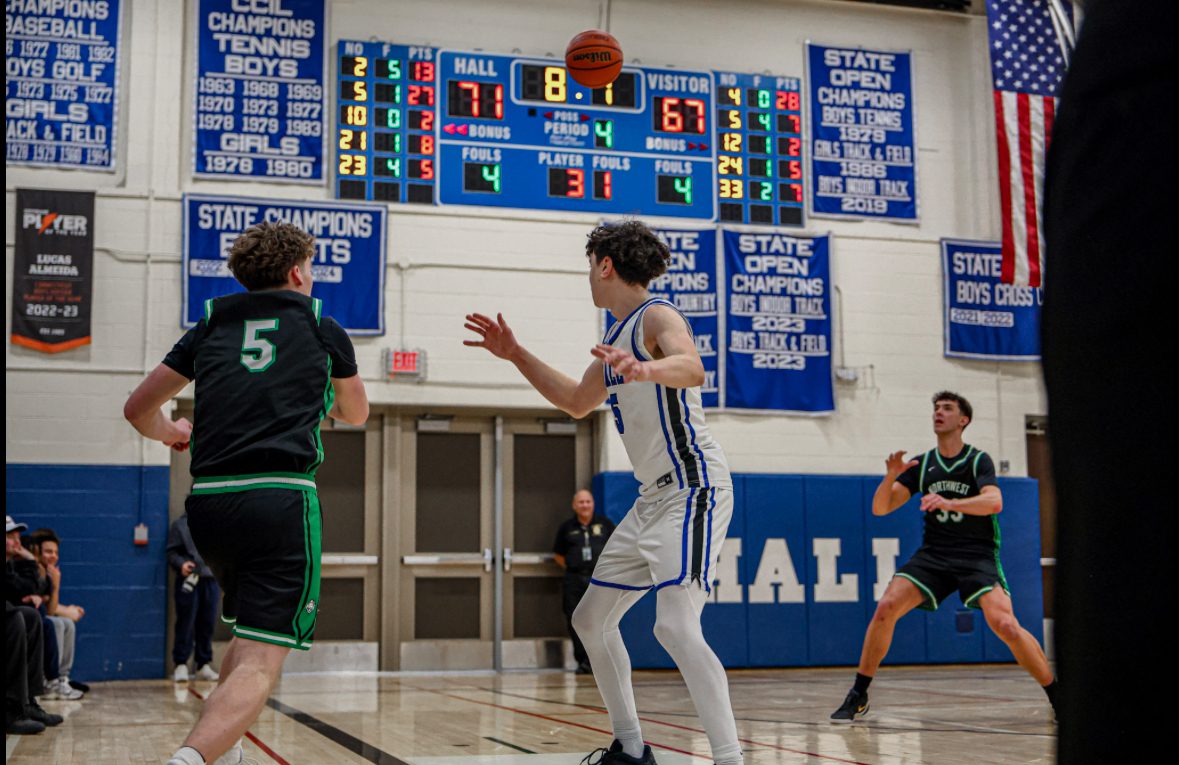Consumer Diary: Book Review of ‘Doctor, Will You Pray for Me?’

Audio By Carbonatix

Courtesy of Harlan Levy
Consumer columnist and West Hartford resident Harlan Levy has more than 20 years of experience writing stories about everyday experiences that anyone could encounter.

Harlan Levy. Courtesy photo
By Harlan Levy
This week I’ve written a book review of “Doctor,Will You Pray for Me?” by esteemed psychiatrist/author/Columbia University Professor Robert Klitzman, my cousin.
I realize it’s an obvious conflict of interest, but I think this book provides valuable lessons for those consumers facing devastating medical decisions. He explores for the first time in depth how including religion and spirituality in medical care aids the healing process and helps deal with critical crises like the threat of death.
Klitzman conducted scores of in-depth interviews with patients, with more than 20 chaplains, and with many doctors to understand the connection between medicine and faith and how doctors – who usually don’t – should work with chaplains to incorporate spirituality in their practices to enhance patient care.
The patients that Klitzman profiles were in crisis, asking questions like “Why me?,” “Why has God let me down?,” ”Why is God punishing me?,” and “God, why have you forsaken me?” All tough questions with no clear answers. But in his interviews with chaplains, he discovers effective ways to help patients deal with their crises. The author also talked with many doctors, most of whom had never bothered with spiritual issues … or who rejected their relevance. To them, Klitzman says they should talk about spirituality with their patients, and they should include chaplains to help deal with distressed patients.
The book begins with the story of Carol, 24. “Breast cancer had invaded and now riddled her body,” Klitzman writes. Most of the day she lay on her side, tired or staring at the wall. “Other times her nose and forehead scrunched in pain,” he says. “I felt badly that I could not offer her any better treatment, and I wondered whether to call a priest.”
But at the time, spiritual issues were never a priority, if they were even recognized. “Through my medical training I had never received a single lecture about religion or spirituality,” he recalls. “I felt uncomfortable … feeling obliged to follow what the doctors around me all seemed to be doing – standing apart from patients’ internal existential struggles and maintaining a strong wall.”
Meanwhile, Carol continued to worsen, and Klitzman asked his supervising resident about calling a priest to try to ease her terror and psychic pain. “He looked at me coldly, askance,” Klitzman recalls. “He contorted his face, eyeing me as if I were nuts – as if I had suggested consulting a voodoo doctor. Apparently, calling a priest was simply not something that we as physicians did. … Even broaching this subject was out of bounds.”
Later, on two separate days he noticed a priest leaving her room. “The next morning, I thought she looked calmer, more relieved than I’d seen her in weeks,” he says. ”Sadly, she died a few weeks afterwards … But I saw how this clergyman had aided her in ways that my medical treatment had not – how religion and spirituality had comforted her as we, as physicians, had failed to do.”
Then Klitzman’s life abruptly and dramatically changed. “On September 11, 2001, my sister Karen died at the World Trade Center.” Newspaper stories about disasters, shootings, and wars ”invariably involved other people – not me,” he thought, shocked. But it did happen to him and his family, and they all spent sad days looking in vain for evidence that she had survived.
Klitzman was devastated and couldn’t work for days, riven by grief and depression. “Why us?” he asked repeatedly. “Why had my family been one of the unlucky ones?” The questions kept reopening psychic wounds. It didn’t seem fair.
He then embarked on a journey to find out how he and others faced patients with spiritual, existential, and religious crises. Previously, no one had examined how doctors responded and handled the vast chasm between strictly scientific approaches … and grappling with larger existential questions about life, fate, meaning, purpose, and the universe, and the basic question ‘Why me?’”
Klitzman acknowledges that although some doctors value religion and spirituality, many doctors fumble when patients ask “Will you pray for me?” Klitzman says.
He cites Philadelphia oncologist Jim Adams, whom he asked what he tells patients who ask. “’I say: Uhh …OK,’ Adams mutters. … He shrugged, as if to say ‘I guess so. Why not? It’s no skin off my back.’” Unfortunately, Klitzman says, “these and many other doctors have received little, if any, education on how to respond to such patient queries. … Though uncomfortably avoided by doctors, these topics nonetheless preoccupy patients and families.”
Nora, 39, a physician with metastatic breast cancer, told him,“I try to stop thinking about the future,” she said, “because just when you see how it’s going to go, something changes.” Her oncologist tried to medicate away her distress with Valium, but Nora refused. Physicians commonly respond to a patient’s existential despair by prescribing medication, Klitzman writes, “often because of their own discomfort with these challenges. But Nora bravely wanted to confront the fact that she was dying.”
Hospital chaplains can ably fill a critical void, Klitzman says, as patients face challenges – coping with aging, disease, pain, and threats of death, having to make tough medical decisions and reevaluate priorities and futures. Patients facing these serious issues “mourn the loss of the future they had imagined and must forge a new one,” he writes. While patients can do so by themselves, he says, chaplains can help by helping them shift their goals, focusing on the here and now, to appreciate more fully the beauty of even small moments.
North Carolina chaplain Adam Quincy tells Klitzman about a home hospice patient who knew he was actively dying and should be dead within six months. “Why has God kept me alive?” he told Quincy. “I’m a burden to my kids. I’m not valuable.” Quincy responded, “Maybe life is not lived according to external accomplishments. What if it’s OK just to enjoy the days you have?” That really struck the patient, Quincy tells Klitzman. “He eventually said, ‘I see I need to change my perspective. There are all kinds of wonderful things going on in the right here and now of my daily life.’”
Re-envisioning a future can be crucial for patients with chronic pain, Texas chaplain Kristine Baker told the author, who added that guilt and remorse “can exacerbate spiritual suffering and, in turn, chronic physical pain and duress.” She told the story of a woman who drove off the road, drunk, and killed her two children. She had a disability from the accident and had chronic pain and a sense of being unredeemable. “I ask, ‘How long do you think you’re going to need to punish yourself? Is there such a thing as an unforgivable sin? Yes, you will always have that pain. But people can live with that and still have meaningful lives. You have to make a decision to be the type of person who makes it through this.’’’
Another key issue that Klitzman explores, which doctors generally don’t, is grappling with questions about what happens after we die. “In grief, beliefs in the hereafter nourish many people,” he writes. He describes a 42-year-old mother, devastated when her two sons died from congenital heart disease. She was extremely angry “that God would allow that to happen.“ But she ultimately found solace, with Klitzman’s help, ”only by coming to feel that she would be reunited with them in Heaven.”
When a patient is the one who’s dying, Chaplain Connie Clark told him, pastoral care aids patients in coming to terms with death by normalizing the complex feelings. “That’s scary,” she told him. “Yet even just saying the word ‘death’ is very healing. I say,’How are you going to plan to live your life now?’”
Another basic issue involves doctors clashing with patients and families regarding needs for more or less aggressive treatment. A chaplain can often mediate in ways doctors don’t, Klitzman says, “providing fresh eyes and perspectives. … [A chaplain] has time to get to know patients and see them from their own perspectives in ways that doctors miss.”
Doctors also may be unprepared to deal with awkward encounters, Klitzman writes, describing an anesthesiologist wheeling a young child to surgery. “There was a good chance he would die in the OR,” the doctor recalled. The parents said, ”Will you pray with us?” He wasn’t sure what to do. “So I said ’I’ll leave you alone to pray together‘ and left the room … unsure if I did the right thing. What do you think?” he asked Klitzman, who replied, “You could have said, ‘I’d be happy to stand here with you in support.’ His poignant question further helped prompt me to write this book.”
In conclusion, Klitzman advocates for enhanced education, training, and practice for both pastoral care providers and doctors.
”The biggest problem,” chaplain Adam Quincy told him, “is that chaplains and doctors speak two different languages. We each need to learn the other’s language.”
NOTE: If you have a consumer problem, contact me at [email protected] (“Consumer” in subject line), and, with the power of the press, maybe I can help.
Like what you see here? Click here to subscribe to We-Ha’s newsletter so you’ll always be in the know about what’s happening in West Hartford! Click the blue button below to become a supporter of We-Ha.com and our efforts to continue producing quality journalism.




Very interesting and moving, thank you. Makes me think back to when my wife was slowly and painfully dying of metastatic breast cancer that spirituality never came up in conversation.